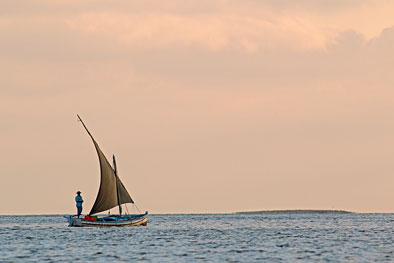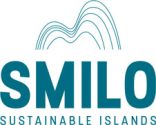

Alongside local authorities, the Conservatoire du littoral and other committed players, SMILO is working to reduce waste at source and improve its local treatment. The association is developing a “zero plastic” approach which aims to help small islands of less than 150 km² to reduce single-use plastics in their territory. This initiative focuses on extending the zero plastic approach from Porquerolles to the islands of Levant and Port-Cros and eventually to the Kerkennah archipelago in Tunisia.
The project is structured around three main goals: strengthening the zero plastic initiative in the Golden Islands by replicating Porquerolles’ zero plastic efforts in Levant and Port-Cros, combating single-use plastics in Kerkennah by experimenting with local alternatives using date palm residues, and promoting good practices and raising awareness through communication and knowledge sharing.
1.Establishment of a Local Production Micro-Sector:
In the Golden Islands, a micro-sector for producing items from cane of Provence was established. This initiative replaced single-use plastic items such as cutlery, ice cream spoons, and straws with washable and reusable alternatives. By utilizing a previously discarded local material, the project not only reduced plastic waste but also supported local producers.
2. Innovation in Kerkennah:
In Kerkennah, date palm residues were used to create a bio-based resin, leading to the development of biodegradable cup prototypes. This approach addresses the agricultural waste issue on the island and opens new economic opportunities for local stakeholders. However, scaling from experimental production to larger-scale manufacturing remains challenging due to the need for specific machinery and investment reluctance from producers.
3. Overcoming Challenges and Expanding Scope:
To address the production scale challenge, the project has replicated the initiative on the Frioul Islands near Marseille with financial support from the South Region. Successful replication could boost demand for cane of Provence and encourage further investment. In Tunisia, despite the higher production costs of plastic alternatives, efforts continue to optimize the lifespan and reuse potential of bio-sourced cups, with food compatibility and toxicity tests.
4. Communication and Outreach:
A robust communication strategy was implemented, including the production of several videos and podcasts to showcase the project’s achievements and promote awareness. Highlights include “Operation Cane of Provence on the Hyères Islands,” “SMILO Projects on Kerkennah Island,” and the presentation of the “Cane of Provence Project Results.” Podcasts discussing mass tourism on Porquerolles and promoting local traditions in Kerkennah have also been produced. These materials have been actively shared on social media and other platforms, reaching both French and English-speaking audiences. SMILO also hosted events like “The Date Palm: Tradition and Innovation” and an international meeting titled “Solutions for Waste-Free Islands in the Mediterranean.”
The project will focus on scaling up production by transitioning from small-scale experimental production to larger-scale manufacturing, securing investments in necessary machinery, and expanding the market for local, sustainable alternatives to single-use plastics. Continued innovation and testing of bio-sourced materials will be crucial, with efforts aimed at optimizing their durability and reuse potential. Following successful replication in the Frioul Islands, further opportunities to implement similar initiatives in other Mediterranean regions will be explored, helping to build a broader movement towards plastic-free environments. Strengthening partnerships with local communities, governments, and stakeholders will remain central to promoting the zero plastic initiative and encouraging widespread adoption of sustainable practices.
The “Zero Plastic in the Golden Islands Archipelago and Mediterranean Replication” project demonstrates the potential of local, sustainable alternatives to combat plastic pollution. By building on its successes and addressing challenges, the project aims to create a cleaner, more sustainable future for the Mediterranean region. For more information and to get involved, visit SMILO.
Updated: June 12, 2024